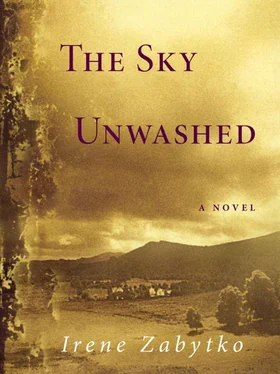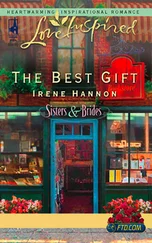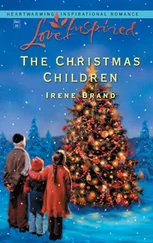Irene Zabytko
THE SKY UNWASHED
A Novel
For my mother, Maria Zabytko, and in memory
of my father, Ostap Stanley Zabytko
And in memory of the “thirty-one”
THE SKY UNWASHED
And the sky is unwashed, and the waves are sleepy,
And beyond the shore, far, far away,
The reeds, as though drunk,
Sway without wind. Merciful Lord!
How much longer do I have
In this open prison,
This useless sea,
This tedious world? It doesn’t speak.
Silent and bent as if alive,
The steppes’ yellowed grasses
Won’t tell the truth.
And there’s no one else to ask.
—Taras Shevchenko, 1848 (Translated from the Ukrainian by Irene Zabytko.)
CHORNOBYL: WORMWOOD (Artemisia vulgaris)
…and there fell a great star from heaven, burning as it were a lamp, and it fell upon the third part of the rivers, and upon the fountains of waters;
…And the name of the star is called Wormwood: and the third part of the waters became wormwood; and many men died of the waters, because they were made bitter…
(Revelation 8:10–11)
When an author writes in one alphabet and her characters speak in another, the problem of transliteration arises. Because the characters in this book speak in Ukrainian and at times in Russian, I have used the English transliterations from both these languages ( e.g ., Kyiv and Kiev, Chornobyl and Chernobyl, etc.).
In the village of Starylis, during the less politically oppressive days of the Gorbachev era in the Soviet Union, the citizens working on the kolhosp , the collective farm, felt themselves to be more prosperous than their counter-parts in the cities of Ukraine. The cows’ milk was sweet and creamy because the animals were allowed to roam the fertile grasslands. From a distance, fleshy black cows dotted the crisp hay fields where they ate the tender and abundant lemongrass and clover. Near the fields, wild red-orange poppies grew defiantly between the giant stalks of sunflowers.
Old men chewed tobacco and sunflower seeds during harvest time so as not to set fire to the dry igloo-shaped bundles of hay with their homemade cigarettes, while the strong, overworked women tended the cows and ran the tractors alongside their men. When they weren’t too busy with the farmwork, the women still made traditional jam from Queen Anne’s lace, a golden paste they spread on generous slices of soft brown breads often baked in the huge outdoor clay ovens their ancestors had fired for over a hundred years.
The old men and women were clearly in charge of the kolhosp . Because of the stubbornness they inherited from their serf forbears, they insisted on harboring pieces of the land for their own small gardens. The government reluctantly allowed each of them one-third of an acre of property. So the villagers’ thatched-roofed houses stood on these modest patches of cleared forest land, surrounded by neat gardens of potatoes, beets, tomatoes and pretty ornamental flowers that the older women grew to adorn the altar in the church. A few families even managed to build tiny sheds on the corners of their crowded lots, which they used to smoke pork, or to hide a still, or to shelter a cow. In the fall, the old women gathered huge, succulent white mushrooms and strung and dried the feathery caps into amber curls that would sell to the highest or loudest bidder on Saturday mornings at the local bazaars.
But the old farmers’ children weren’t so stubborn. They preferred to seek the better wages at the nuclear power plant in nearby Chornobyl. There, the gray cement modern buildings were a monument to the Soviet promise of progress. Everyone knew that if you could last five years doing whatever work they gave you, you were eligible to apply for a short family vacation at the plant’s residence in the resort town of Sochi on the Black Sea. Ten years on the job got you a booklet of coupons that permitted you to shop at the kashtan , the stores that were only for tourists with hard currency or for Communist Party officials. At the kashtan , you could buy transistor radios and mock oriental rugs. Sometimes, sexy ivory nylon blouses from East Germany or ice-pink lipsticks from Poland would come in unexpectedly and be bought up in minutes, before the next surprise product appeared without warning on the shelves.
Until their names came up on the interminable waiting lists for the ever-crowded, dour blocks of Stalin-esque apartments closest to the Chornobyl plant, this new generation lived in Starylis with their parents and grandparents. Together, the generations mingled, fought and survived in the cramped village cottages because, for the meantime, they had no place else to go. They rebuilt the roofs, especially the thatched ones which always needed repair after a hard winter, or pooled their monthly wages to buy a new cow or a new kind of television without the horizontal lines that defaced the screen whenever anyone was trying to watch a news program or a rock concert direct from Moscow. The more affluent families of Starylis could even afford a car, a Volga or Lada usually, black and sturdy, complete with a diesel engine that could blow the dust on the country roads even further than a tractor could.
What the younger villagers of Starylis wanted most was to bring some material comfort into their hard, barren lives. Years of empty Communist promises had led to apathy and disillusionment and made them hunger for the tangible possessions they thought would soothe their frustrated spirits.
For their part, the older generation—the ones who had survived Stalin, famine and war, especially the babysi , the old women in babushkas who kept the old ways alive with their icons and litanies despite the official ban on religion—knew that the hard times never end.
In 1986, Paraskevia Volodymyrivna told the other babysi of Starylis that the storks had not returned to nest on her thatched roof. This had happened only twice before during her lifetime—in 1933 at the height of Stalin’s artificial famine and in 1944 when the Germans invaded the village. A bad sign, Paraskevia told anyone passing her house who would listen. Maybe they’ll come yet, many said to appease the old woman. But Paraskevia shook her head. The storks had always returned just when the long thick icicles under the eaves melted and dripped like a death knoll to announce the end of winter. By the time the first crocuses opened their sassy yellow petals, and the buds on the naked trees were about to green and swell, the storks should already have been settled into their wide nests.
A bad sign, Paraskevia repeated to herself. She made the sign of the cross and expected something to happen.
PART I
Back in a Few Days…
MARUSIA PETRENKO’S HANDS were coarse and red, thickened over the years by hard work, bad weather and indifference, and yet the pads on the tips of her fingers were as soft as a baby’s bald crown. Her hands were numb to most sensations and especially to the hot water she poured over the socks of her only son Yurko—a man in his forties, and she in her seventies. The washing of his socks and underwear was a habit Marusia chose to keep even though Yurko had a wife.
She used the yellow lye soap from the Starylis coop store that was used in all the homes in the village. It was locally made by the old men, and they could never agree on how much lanolin to put in, nor had they the creative bent to dash in some essence of violets to make a more luxurious and feminine soap for the ladies—the men simply didn’t care about such things. Marusia rubbed the thick cake hard against the material and sloshed the socks in the little copper sink. The underwear and socks, heavy with water, were wrung through her long fingers, the water scalding her knuckles. She furiously fought the stains and throttled the cheap, thinning fabrics with the blows of her powerful hands—turning, splashing, until the front of her dress became soaked with a vest of wetness over her ample breasts.
Читать дальше











